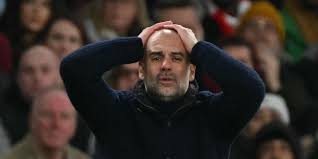The Influence of Pep Guardiola on Modern Football

Introduction
Pep Guardiola, the highly regarded football manager, has shaped the modern game with his innovative coaching methods and tactical acumen. His approach has not only transformed the teams he has managed but has also set new standards in football tactics worldwide. Understanding Guardiola’s influence is crucial for fans, players, and aspiring coaches alike, as his philosophies continue to inspire the next generation of football leaders.
Early Career and Rise to Prominence
Guardiola’s managerial career began at Barcelona B, where he showcased his capability to lead and develop young talent. His breakthrough came when he took over the first team in 2008. Under his guidance, Barcelona won an unprecedented six trophies in 2009, including two Champions League titles. His emphasis on possession-based football, known as ‘tiki-taka’, revolutionised how football was perceived and played, setting a benchmark for teams globally.
Success with Multiple Clubs
After leaving Barcelona in 2012, Guardiola took on the challenge at Bayern Munich. He maintained a high level of success, winning three consecutive Bundesliga titles and further refining his tactics, including the implementation of a high pressing game. In 2016, he moved to Manchester City, where he has continued to build on his legacy. Guardiola led City to a historic treble in the 2022-23 season, including the Premier League, FA Cup, and Champions League, further asserting his position as one of the game’s greats.
Tactical Innovations
Guardiola’s tactics are distinguished by their fluidity, emphasis on positional play, and pressing strategies. By utilising players in unfamiliar roles, such as deploying full-backs in midfield, Guardiola has consistently challenged traditional football norms. His ability to adapt his tactics according to the opponent and maintain a high level of performance is a hallmark of his management style.
Legacy and Influence
The impact of Guardiola extends beyond his immediate accomplishments. His coaching philosophy has inspired a generation of managers and players who strive to emulate his approach. Clubs across Europe are adapting elements of his style, indicating a shift in the tactical landscape of football. Moreover, Guardiola has emphasised the importance of mental resilience and team cohesion, recognising that success is not solely dependent on physical prowess but also on psychological strength.
Conclusion
Pep Guardiola’s influence on modern football cannot be overstated. His innovative tactics and leadership have not only brought success to his teams but also left an indelible mark on the footballing world. As the landscape of football continues to evolve, Guardiola’s philosophies will remain influential, serving as a guide for future managers and teams striving for excellence in the sport.









